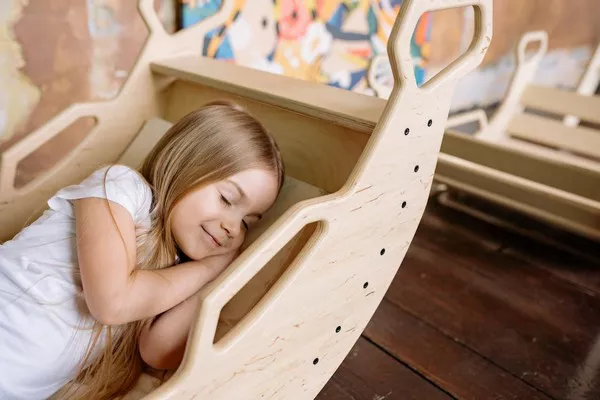Newborn babies are truly wonders of nature, capturing our hearts with their innocence and vulnerability. As we gaze at their peaceful slumber, we may notice something truly captivating—their fleeting smiles. These endearing expressions often leave parents and caregivers bewildered, prompting the question: Why do newborns smile in their sleep? In this article, we delve into this enchanting mystery, exploring the possible explanations behind those precious smiles that grace the faces of sleeping infants.
-
Early Development and Neural Connections:
At birth, a baby’s brain is a fascinating realm of rapid growth and development. While the exact reasons for newborn smiles during sleep are not yet fully understood, experts suggest that these smiles may be related to the establishment of crucial neural connections within the brain. As infants sleep, their brains are actively engaged in processing and organizing the plethora of new sensory information they have encountered since birth. Smiling could be an involuntary expression resulting from the brain’s efforts to integrate these experiences.
-
Reflexive Behaviors:
Another theory proposes that newborn smiles are simply a reflexive behavior, similar to the various reflexes infants display during their early months. Reflexive smiles, also known as “genuine” or “innate” smiles, typically emerge around the age of one month and are triggered by internal factors, such as gas or digestion. These reflexive smiles may occur during sleep as well, as the baby’s facial muscles may twitch involuntarily.
-
Emotional Processing and Dreaming:
It is widely believed that adults experience dreams during the REM (rapid eye movement) stage of sleep. While the research on infants’ dreaming is limited, studies suggest that newborns do indeed experience REM sleep. Some experts propose that newborn smiles during sleep may be a result of emotional processing and the manifestation of dream-like experiences. Infants may be reliving pleasant sensory memories, which evoke the smile responses we find so heartwarming.
-
Parent-Infant Bonding:
One particularly heartening explanation for newborn smiles during sleep revolves around the concept of parent-infant bonding. Numerous studies have shown that parents and caregivers respond more positively and engage in nurturing behaviors when their newborns smile. These smiles act as powerful reinforcements, strengthening the emotional connection between the baby and their primary caregivers. Consequently, the baby may smile during sleep as a subconscious way of eliciting a nurturing response from their parents, fostering a deeper bond.
-
The Blissful State of Sleep:
We all know the rejuvenating effects of a good night’s sleep. Similarly, newborns require substantial periods of rest to support their rapid growth and development. During sleep, newborns often enter a state of profound relaxation, experiencing a sense of bliss and contentment. It is conceivable that the smiles we witness are an expression of the serenity and tranquility they feel while slumbering, providing us a glimpse into their inner bliss.
Conclusion:
The smiles that adorn the faces of newborns during their sleep are truly enchanting. While the exact reasons behind these smiles remain somewhat elusive, several plausible explanations offer insight into this captivating phenomenon. Whether it is due to early brain development, reflexive behaviors, emotional processing, or the blissful state of sleep itself, these smiles serve as a reminder of the innate wonder and mystery that accompany the arrival of a newborn. Cherish these fleeting moments, for they embody the profound innocence and beauty that define the early stages of life.


